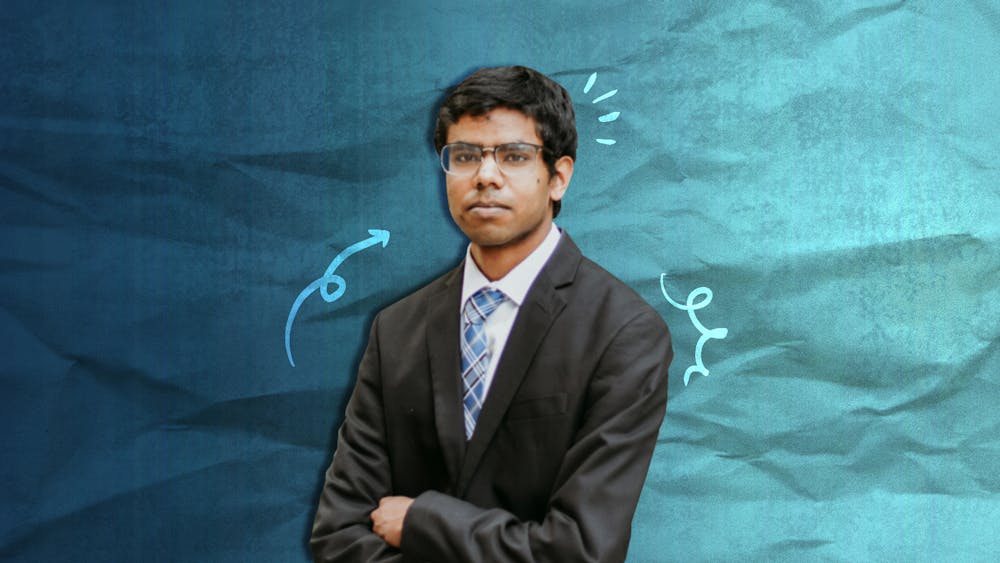Today, cell phones make it possible to call friends and family whenever you want, wherever you want. However, communication wasn’t always as easy as it is today. Until about the 2000s, payphones used to be an important source of communication. While the advent of cell phones has made communication easier for many, it has also made communication less accessible for those who depend on payphones. Here in Philly, founder of Philtel Naveen Albert (E' 23) seeks to bring back payphones to the city and make communication accessible for all.
Collecting phones and playing with telephone switches was a typical activity that you would catch high school Naveen doing. Starting off as an interest in technology, Naveen's passion for telephones led him to learn more about the technical side of these devices. Eventually, he started learning about the software behind telephone switches and doing the developmental work, bringing this hobby to a whole other level.
Naveen doesn't have a mobile phone. Instead, he relies on payphones to communicate with others when he goes out. Naveen started to notice that the start of the pandemic brought along a rise of reliance on mobile phones, leaving payphones a distant memory for many. Payphones, which were once the heart of communication throughout the city, began to rapidly disappear. Naveen took notice of the void that these disappearing phones left, and sought to find a solution to this.
During his freshman year at Penn, he met his current project partner, Mike, through exploring the city’s telephone infrastructure. They started seeing each other through monthly 2600 hacker meetings which not only helped nurture their friendship but also introduced each other to a mutual passion for various phone topics. During their short meetings, they would mention ideas of setting up payphones throughout the city, although this idea did not become a reality until the summer before Naveen’s senior year.
In one of these conversations, Naveen mentioned a project back in Portland, Oregon that he came across a while back. The project was called futel, a non-profit organization with the objective of providing free telephone access to everyone. Sensing that the disappearance of payphones was not just a temporary or locational complication, Naveen set a goal to keep this dying mode of communication alive in Philadelphia.
While Philadelphia used to be filled with thousands of payphones, now there are around only 50 working ones in the city. A project that Naveen has long dreamed of, started to become a reality during his summer of senior year. Discussing the project further with Mike, they began to compare notes about different payphones. Using their experience operating telephone switches, this duo took on the challenge of reinstalling payphones into their own hands.
Having strengths in different departments, Naveen handled the software side of things while Mike focused on potential locations and the hardware related aspects. The two were truly an unstoppable partnership, and soon enough they installed their first payphone in downtown Philadelphia at Iffy Books. Looking towards the near future, Naveen elaborates on plans to install payphones in other locations, especially outside of the city since the downtown area still has a fair number of payphones.
To Naveen, this passion project is much more than simply revitalizing payphones throughout the city. It is a way for him to give back to his community and increase the availability of payphones to those who really needed it. Using payphones himself, Naveen really understands the importance that these devices hold and wanted to find a way to make this basic need a reality for many.
“I think a lot of it is having the perspective of payphones being a useful and much needed public resource, even today, in much the same way that public transportation is. I like to liken it to that because it shares a lot of the same traits in terms of being under deployed but useful to diverse groups of people,” Naveen says.
Finding importance in the role communication plays, Naveen hopes to make this aspect accessible to everyone. Beyond telephones being something Naveen is passionate about, it is something that he wants to use to make a real impact on the community, starting with one payphone at a time.

